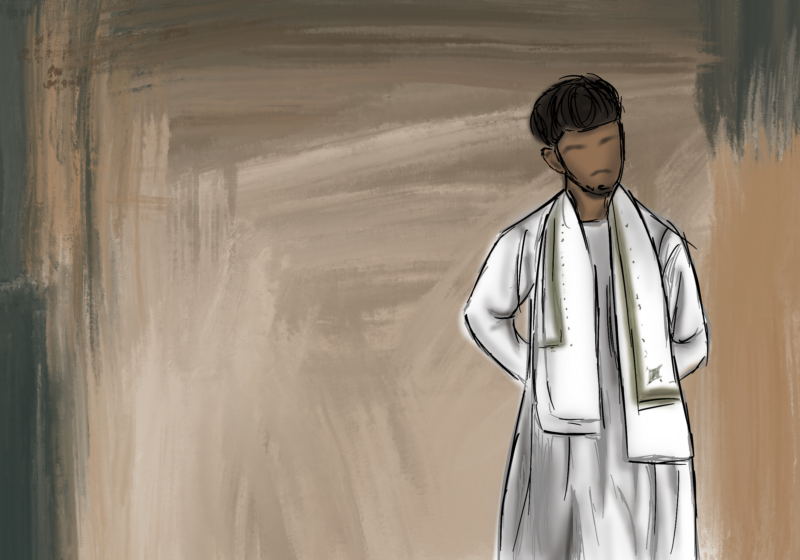Among the many student-run projects at UR, Israel Peace Week is perhaps among the more ambitious and controversial events for the University community. In an effort to portray Israel as a peaceful, democratic state, five students from around the United States and Canada created the Israel Peace Week, which, according to their website, “is an initiative to spread awareness about Israel and her pursuit of peace.” It seeks to “educate students [across several college campuses] about the true nature of Israel” through various events specific to the respective colleges’ councils. At UR, such events included the Israel Peace Train (a night of free falafel and Israeli music in Hirst Lounge), a lecture by author and economist Dan Senor, a movie screening of the pro-Israel film “Relentless: The Struggle for Peace in the Middle East” and Shabbat services at the Rochester Chabad House. Through these events, the founders of Israel Peace Week and their numerous sponsors seek to spread the message of a nation’s work towards a peaceful future.
Along with this seemingly optimistic event, however, comes the controversy often associated with events pertaining to Israel: Is the idea of Israel as a peaceful and democratic state far from reality? What is the distinction between the achievement of peace versus the efforts required to accomplish it? The controversies surrounding the issue seem endless and lead to charged opinions about the validity of these competing schools of thought. Indeed, no idea can be complete without its antithesis, and at UR both sides of the pro/anti Israel coin are present. For example, events such as the Israel Apartheid Week seek to spread the opposite message to Peace Week — namely, that Israel is an apartheid state, and that such efforts for peace are not the reality of the conflicted nation. In addition, anti-Zionist sentiments made known via Facebook and e-mail were reported in concordance with the event, leading one to wonder about the true nature of trying to spread such messages to the community. What are the consequences of stating and attempting to prove controversial opinions, and what are the methods by which one can appropriately refute the challenger?
Perhaps the most incendiary among the events presented during Israel Peace Week has been of the lecture by Dan Senor, co-author of the book “Start Up Nation: The Story of Israel’s Economic Miracle.” Although an advocate of Israel’s economic successes in recent history, the individual character of Senor is questionable among some audiences. “A lot of people are very upset at the fact we’re co-sponsoring his lecture under the auspices of Peace Week,” co-founder of Israel Peace Week and junior Anna Richlin commented. “Because they feel that he — as an individual, as an economist, as a businessman — is not peaceful in nature, as they feel that he is very pro-war, and he’s extremely right wing. They felt like it was misrepresentation having that type of person lecturing during Peace Week.”
The lecture by Senor, which took place at the Simon School of Business on Wednesday night, had several school officials in attendance, along with a portion of the student body. After UR President Joel Seligman offered a brief introduction (complete with a plug to buy Senor’s book), Senor’s lecture covered the economic state of Israel and his perceptions of the economy versus the political intricacies of the country, focusing briefly on the economic consequences of the occupation of the West Bank and Israel as an economic power in the world at large. While an effective and knowledgeable speaker, it did appear that, like many of his critics claimed, Senor was decidedly more concerned in the economic workings of Israeli companies in the world market. In Senor’s defense, however, he did not claim to be an advocate of peace or humanitarianism. Rather he remained diligently on task to his area of expertise and did not deviate to offer any of his opinions on other issues
he may not have had adequate enough experience to elaborate on. “Israel Council’s stance, and my personal stance, is that he’s not lecturing on [humanitarianism] at all, he’s lecturing on Israel as an economic success, which relates to Peace Week because Israel is bringing strong economy to the world, and that shows a global dimension of peace,” Richlin said.
Does having a pro-war, right wing advocate for the purpose of lecturing on the economic successes of a nation make an event anti-peace? In addition, does the opposition to such speakers make one an anti-Zionist?
The efforts of preparing conflict-neutral events to a politically, religiously, economically and humanistically charged issue so prevalent as the perceptions of Israel is no easy task, and the execution is even harder to adequately discern.
It is not, however, the provocation of thought that Israel Peace Week fears, rather, the absence of thought and political apathy that are widespread through all college communities is the greater opponent.
In addition to spreading their belief that Israel is a peaceful and democratic state, Israel Peace Week seeks to combat this apathy as well. “A big goal of mine with Israel Peace Week is to just spread the message and get people to care,” Richlin said. “Because, if you learn one positive thing about Israel that you didn’t know before, and you begin to care about that one positive thing, that makes all the difference in the world.”
Overall, the Peace Week remains an ambitious event brought to the University community to spread the message of peace in an area of inherent and widespread controversy.
Whether or not Israel Peace Week is correct in its message, the thought-provoking nature of expressing an opinion in a charged topic — one that has been of enormous prevalence to the world with waning outside attention — in an educational setting, where students offer their knowledge and experiences to better their community and spread their beliefs to others, can not easily be faulted. Indeed, the Peace Week offers more than free falafel to the University, and, through the provocation of thought, many individuals learn more from a subject they may not have considered before.
Cicoria is a member of
the class of 2012.





